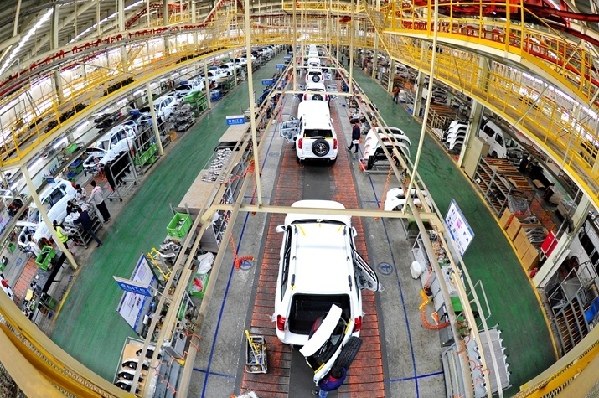What TPP will bring to China?
- By Zhang Lijuan
 0 Comment(s)
0 Comment(s) Print
Print E-mail China.org.cn, October 12, 2015
E-mail China.org.cn, October 12, 2015
|
|
|
Workers assemble cars at a north China production base of BAIC Motor, a state-owned auto group [Xinhua] |
It's tea time now with the Trans-Pacific Partnership (TPP) all across the Pacific Ocean. On October 5, 2015, twelve nations led by the United States reached an agreement on the TPP. Although the details have not been released, speculation regarding the TPP has been a popular headline this past week. On Capitol Hill, many democrats have fiercely opposed the deal. In China, most people believe the TPP is an American geopolitical initiative. Consequently, most discussions in China have focused on how the TPP will negatively impact China.
During the past three decades, foreign trade and investment has been critical in driving China's economic rise. During the years of China's WTO accession negotiations (1986-2001), China was eager to become a member of the world multilateral trading regime. Indeed, many in China thought that being a WTO member would mean a truly globalized China. After joining the WTO in 2001, China faced new challenges for its domestic economic reform. Meanwhile, Regional Trade Agreements (RTAs) became prevalent, challenging the WTO's capacity in global trade governance. The United States began to use RTAs as a strategic vehicle to balance its trade and foreign policy. The Bush administration accelerated its RTA negotiations as part of a strategy to counter terrorism.
For China, bilateral or regional free trade agreements (FTAs) were not a major part of its trade policy agenda until 2007. Promotional FTAs were then written into the official documentation of the 17th National Congress of the Communist Party of China. China first started its FTA talks with bordering nations, because China is the largest trading partner for most of these countries. Soon after the initial talks, China had to face the double-edged diplomacy dilemma. China's Asian trading partners prefer trade deals with China, but they hold on to security concerns through alliances built with the U.S.
When the U.S. began to lead talks for the TPP, China saw the partnership as a choice, but not a necessity. Due to cultural and historical reasons, the majority of Chinese see China's domestic issues as the most challenging for China's future prosperity and feel that China should be more concerned about its economic sustainability than anything else. From a macroeconomic perspective, the TPP would bring much less economic gain to China than the WTO has brought. Having said that, the TPP is not an ordinary trade agreement; it is a strategic value-added deal for its members.
It is probably too early now to judge China's gains or losses from not being part of the TPP. However, there are a few determinants that should be tested later on.







Go to Forum >>0 Comment(s)